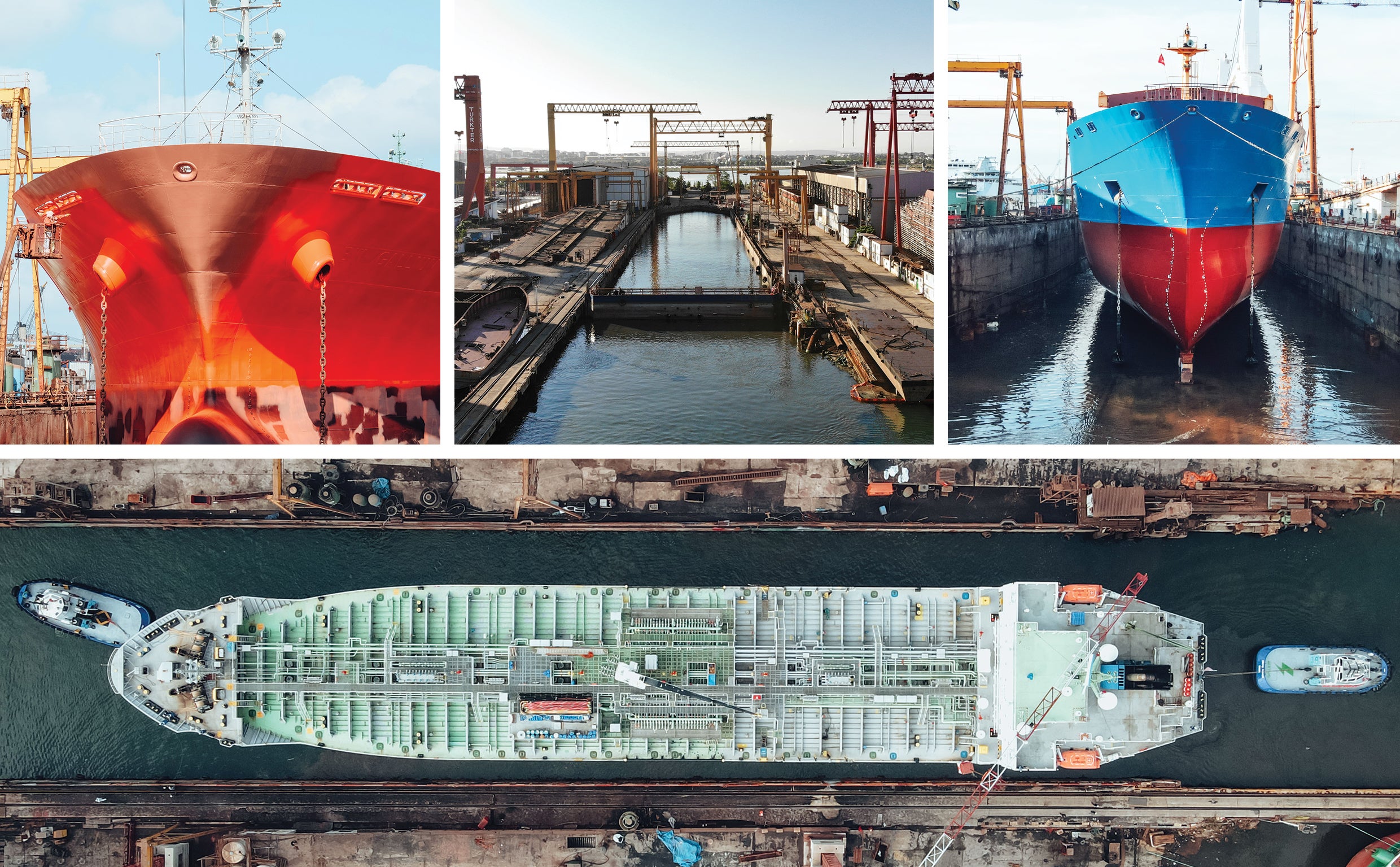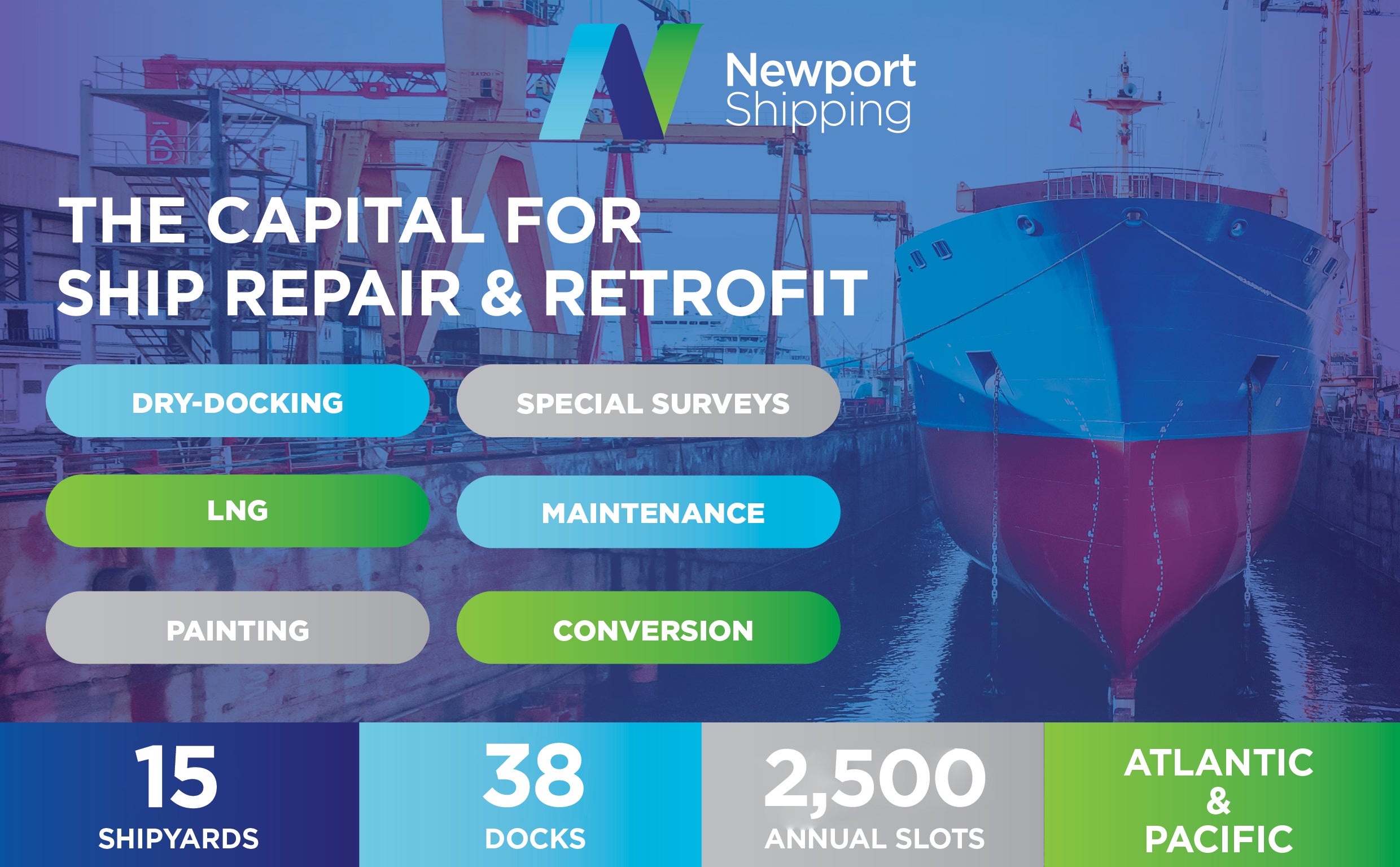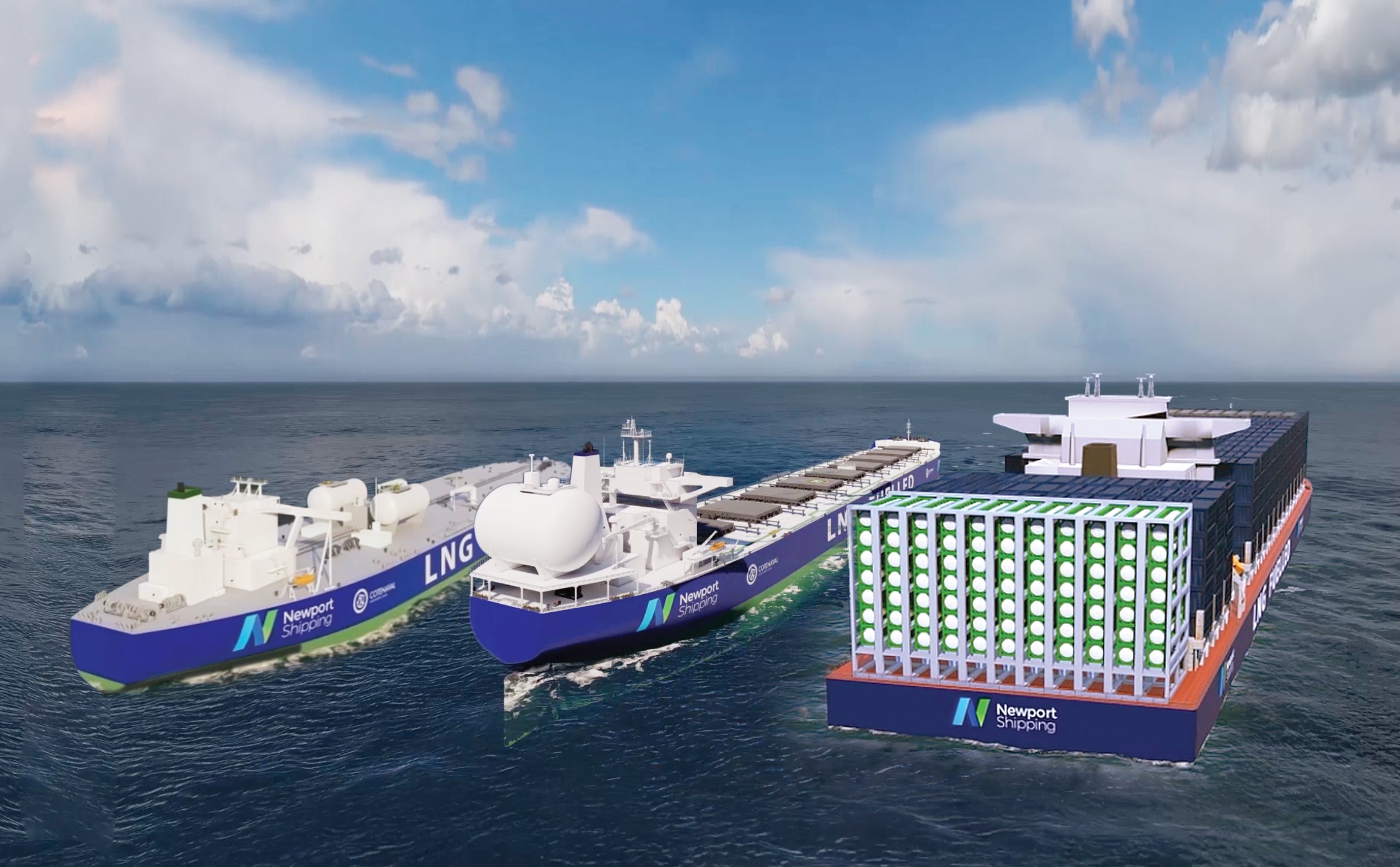Newport Shipping charts a new path for the ship repair industry
THE ARTICLES ON THESE PAGES ARE PRODUCED BY BUSINESS REPORTER, WHICH TAKES SOLE RESPONSIBILITY FOR THE CONTENTS

Newport Shipping is a Business Reporter client
Newport Shipping is a ship repair company specialising in maintenance, retrofits, repair and conversions with a low carbon focus for commercial vessels including tankers, bulk carriers and container vessels. Newport has a 60-year history in the ship repair business and has a focus on innovation and sustainability for the long term.
Newport is active globally collaborating with 15 yards with 38 docks capable of handling approximately 2,500 repairs annually of all vessel classes and sizes. It has teamed up with the industry’s best suppliers of environmental technology, giving customers access to leading-edge innovation at shipyard locations.

Environment
Environmental regulations are at the forefront of a changing industry with owners seeking reliable and proven technology. The International Maritime Organization (IMO) has set a goal to halve international shipping’s greenhouse gas emissions of nearly a billion tonnes per annum and reduce carbon intensity to 70 per cent of 2008 levels by 2050. The new Energy Efficiency Existing Ship Index (EEXI) will require all existing cargo vessels to meet stricter class limits on emissions for annual surveys performed from 1 January 2023.
Newport Shipping has launched three liquified natural gas (LNG) retrofit designs for tankers, bulk carriers and container vessel onto the market, allowing shipowners to convert their vessels to a more environmentally friendly fuel solution.
Lianghui Xia, Group Managing Director, Newport Shipping, explains: “Given the time pressure and scale demanded by the IMO decarbonisation target, the right solution will make it easier for owners to commit themselves to execution. LNG has the right characteristics as being the most practical choice for a marine fuel. We believe now is the right time for us to provide the market with our solution, which is both cost-effective and time-efficient.”
As with all new technologies, the subject of price is always a key factor for adoption. Ingmar Loges, Managing Director of Newport Shipping’s Hamburg office, highlights the financial impact of adopting an LNG design: “When we discuss LNG retrofits, the motivation for the shipowner has been driven by several factors, including financial ROIs. But owners are also looking at the changing decarbonisation/zero-emission shipping landscape – the savings in costs and to the environment can be tremendous, with shipowners also looking at the possibility of an expanded customer base.”
Newport Shipping’s new designs are based on deck-mounted LNG tanks that can be installed without major modifications to the vessel hull, thereby reducing installation costs. Another advantage is that, as part of a retrofit solution using a dual-fuel engine, it would also be suitable for future use of carbon-neutral methane such as bio-LNG. Tank capacity, which is based on typical ship profile and planned operating route, is sufficient for a single voyage.
Newport Shipping has also developed a container ship LNG design. The design is based on containers for LNG being stored on deck that can then be discharged and replaced when a vessel enters port.
The significance of these designs means the shipping industry has a solution available today which will allow it to start cutting its carbon emissions immediately while meeting future incoming industry environmental regulations.

Finance
Tighter lending requirements have made traditional sources of shipping finance increasingly difficult to access, at a time when the shipping industry needs significant investment to accelerate its transition to zero emissions and fund the growing fleet capacity required to transport the world’s goods. With sustainability demand growing, maritime is moving towards a global green ship finance market with major demand expected for retrofit funding, and there has been a corresponding increase in interest from finance sources.
Ingmar Loges, Managing Director at Newport Shipping Germany, with responsibility for Group Sales & Retrofits, adds “Newport internally has a number of finance professionals and has access to external green finance to support retrofit investment and other ship finance, and can assist in structuring customised financing solutions, subject to credit evaluation and approval. We would be pleased to assist in any introductions to our trusted experienced ship finance contacts.”
The digital step-change
Adapting to the changing horizon that digitalisation is bringing to the maritime industry, Newport has developed its online booking portal Newport Maritime Services (NMS), which provides access to all its services through a web-based portal.
Digitalisation is seeing many bespoke online tools now being used daily to operate and manage the world’s merchant vessel fleet. The ship repair and retrofit sector has arguably lagged in adapting to the digital age, with most of the work around vital activities still being conducted via complex spreadsheets, layers of brokers and reams of paperwork.
The NMS portal is a new way of managing ship repair and retrofit projects via a bespoke online platform. The platform enables shipowners and fleet operators to obtain instant quotes for routine maintenance works, have real-time visibility of shipyard availability and receive priority access to dry-dock slots and service, all at the click of a mouse.
Cenk Ozeker, Board Member at NMS, outlines how the platform bridges the gap between shipowners and shipyards: “Digitalisation is on the agenda of all companies operating in the shipping industry but the sector also remains true to its traditional roots. We wanted to introduce an online tool that works in harmony with the people that make the ship repair sector what it is today, enabling greater transparency and thereby validating the trust and personal relationships that the industry is built on.”
Kagan Kongar, Chief Technology Officer, NMS comments: “NMS employs a number of unique methodologies and technologies, such as auto-filling ship specifications, standardisation of the quantities and unit prices of repair and maintenance items; standardisation of retrofitting specifications and ready-to-use special survey templates by vessel type and age.”
NMS is a potential game-changer for those responsible for the management of multiple vessels, empowering them with a level of transparency and control that more traditional methods cannot deliver while significantly de-risking the whole process – providing a faster, cheaper, more efficient, controlled and audited experience.


Originally published on Business Reporter
